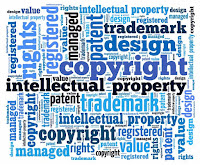The white paper persuasively explains why legislation introduced in several states that would require authors and book distributors to license e-books to public libraries according to rates and other terms set by state law is preempted by U.S. copyright law. Moreover: "The proponents for these bills present a distorted view of the market for copyrighted works in order to rationalize unprecedented government intervention into the longstanding and fundamental rights of copyright owners to determine prices and other contractual terms in the market." And the white paper states that "these bills will undermine the very goal that their supporters seek—easy and affordable access to e-books."
Free State Foundation President Randolph May and I analyzed the legal defects of state compulsory licensing of ebooks to public libraries in our March 2022 Perspectives from FSF Scholars, "State Laws Forcing Publishers to License Ebooks to Libraries Are Unlawful." And in a May 2022 Perspectives from FSF Scholars, "State Restrictions on Ebook License Prices Are Preempted by Federal Law," I explained why state-level rate controls of ebook licensing also run afoul of federal copyright law.
The Constitution and the Copyright Act establish a uniform nationwide system for copyright protection that ensures that creators have financial opportunity to seek returns on their creative labors. But any state laws that seek to regulate the exclusive rights of copyright owners in their creative works – whether movies, TV shows, sound recordings, or literary publications – would conflict with that system and undermine incentives for creative enterprise. States should be mindful of preemption principles and not seek to mandate the licensing or licensing rates for copyrighted works.





